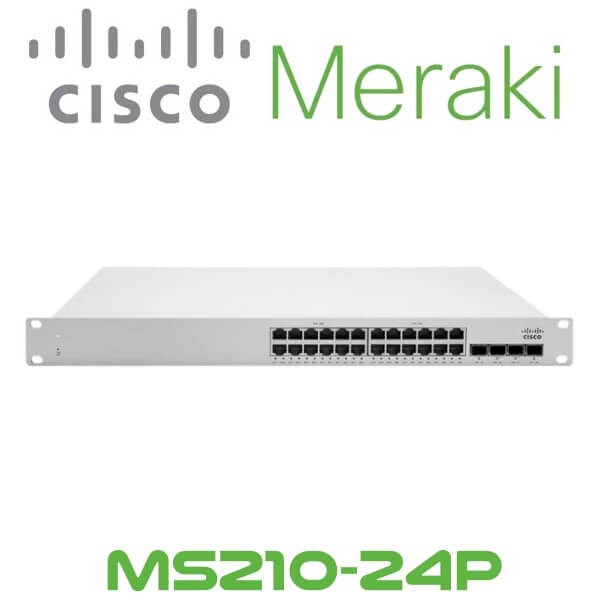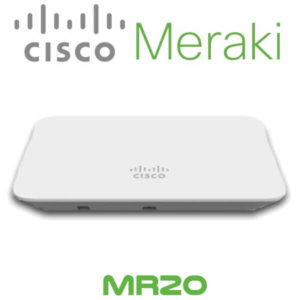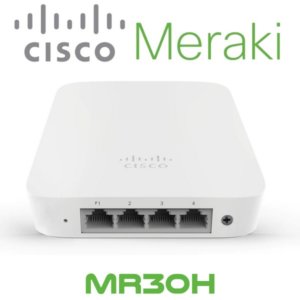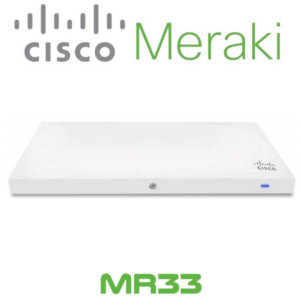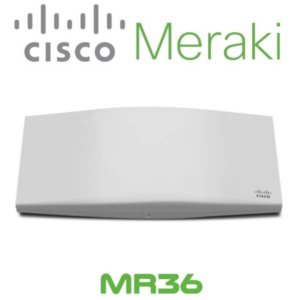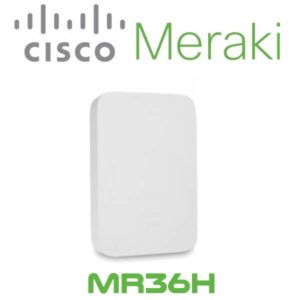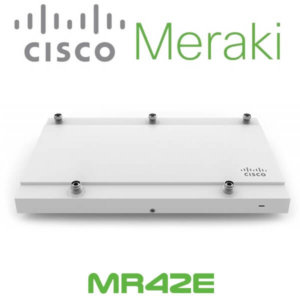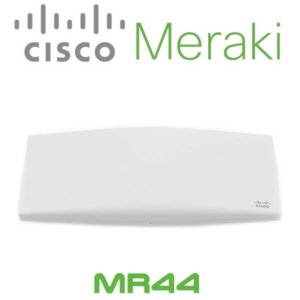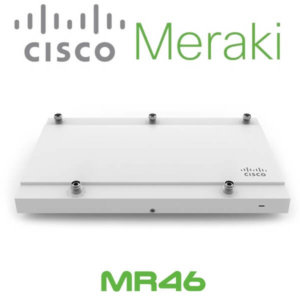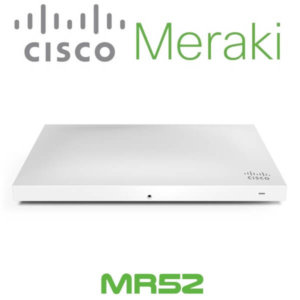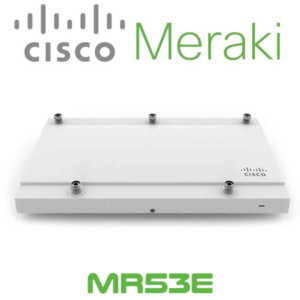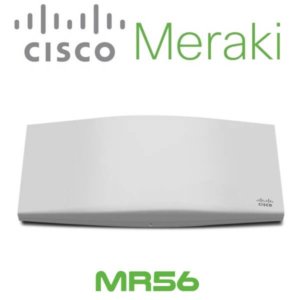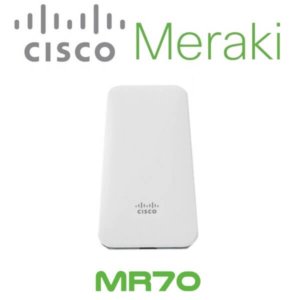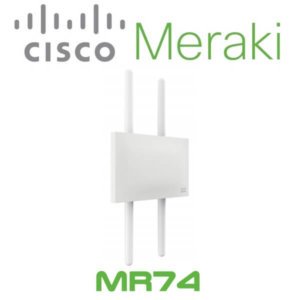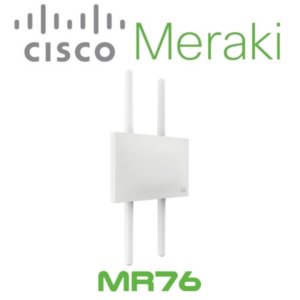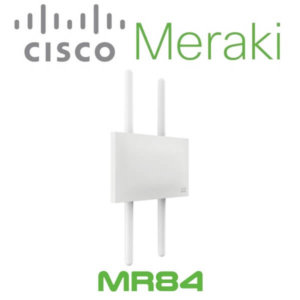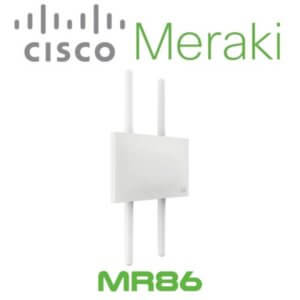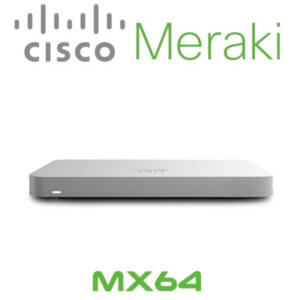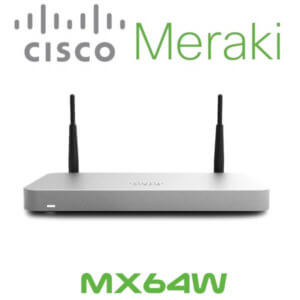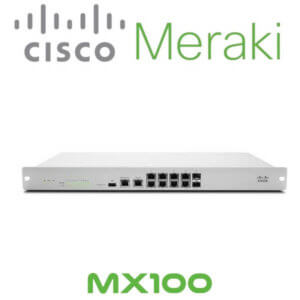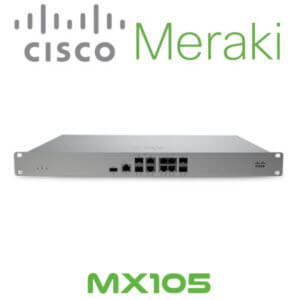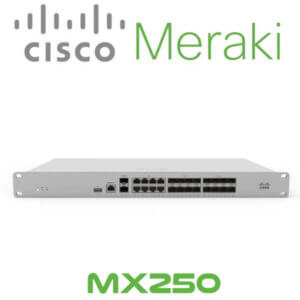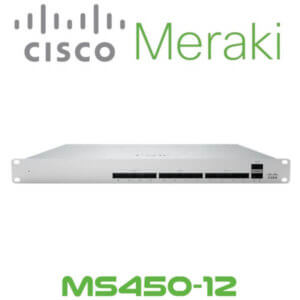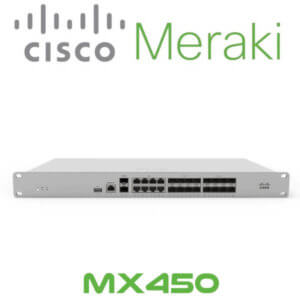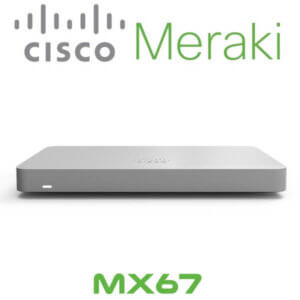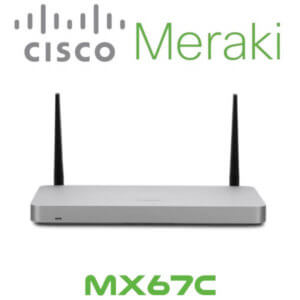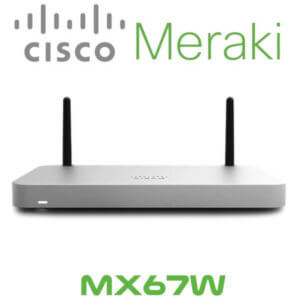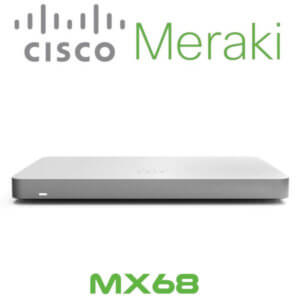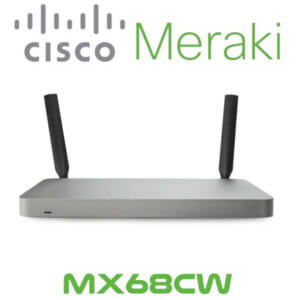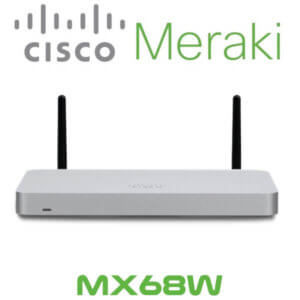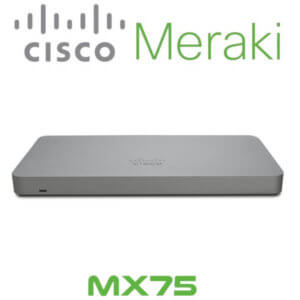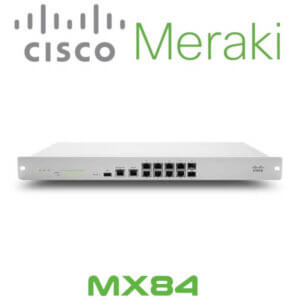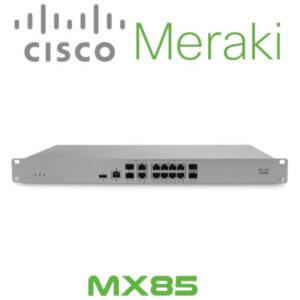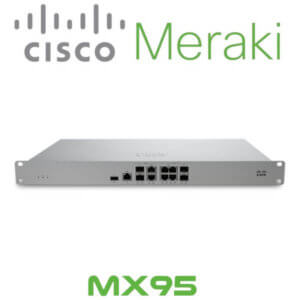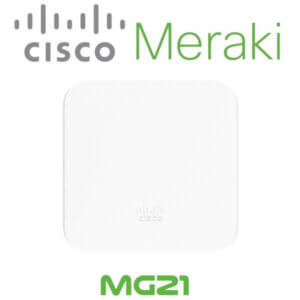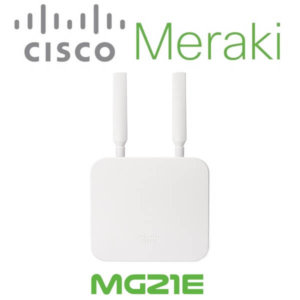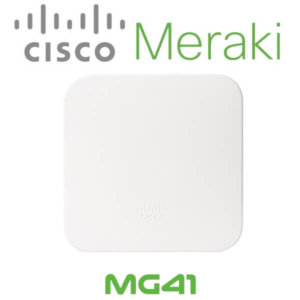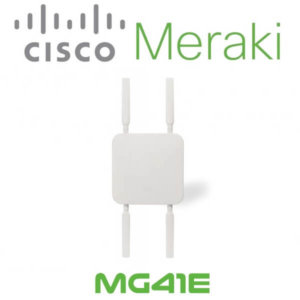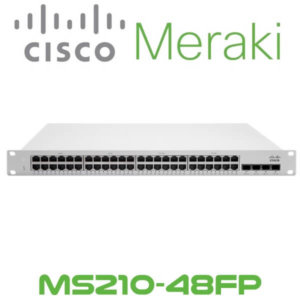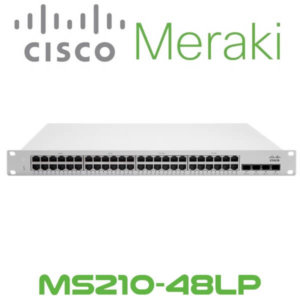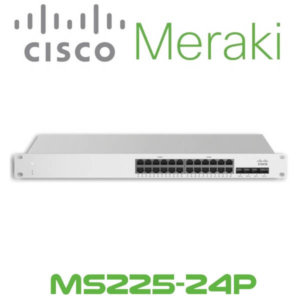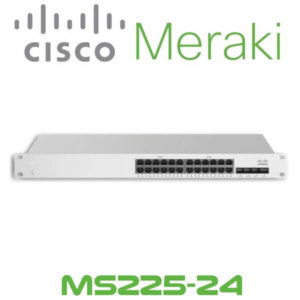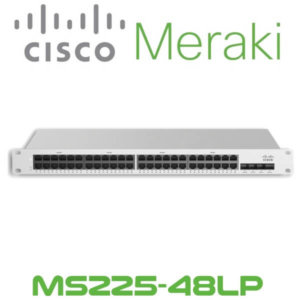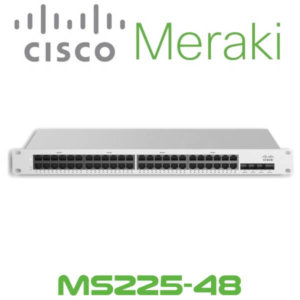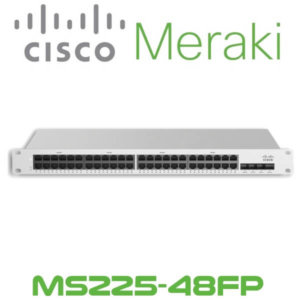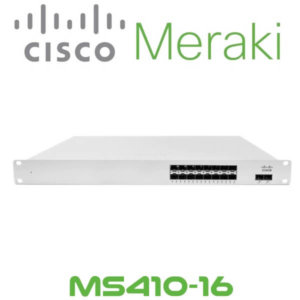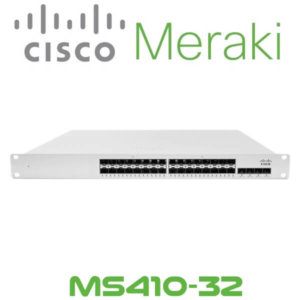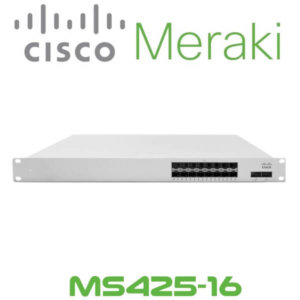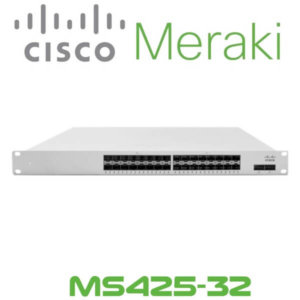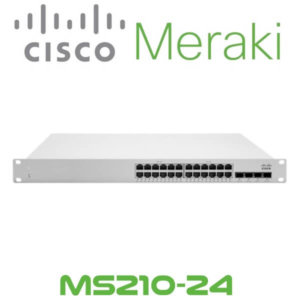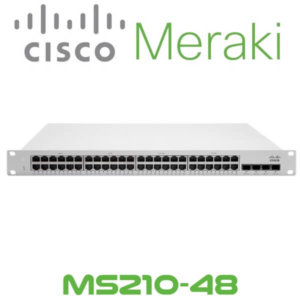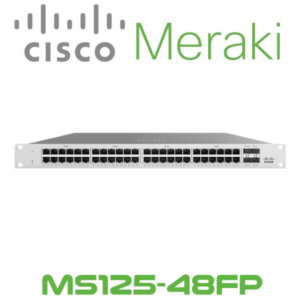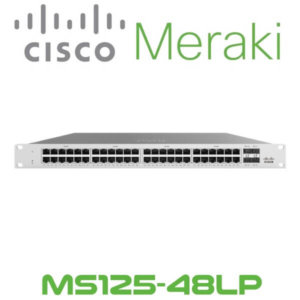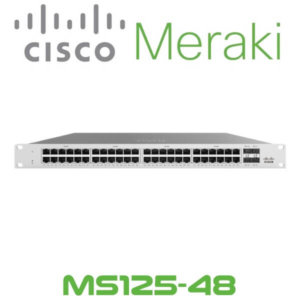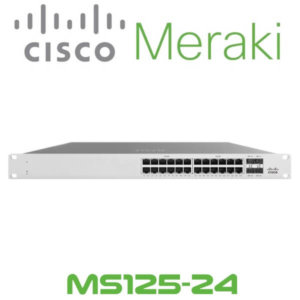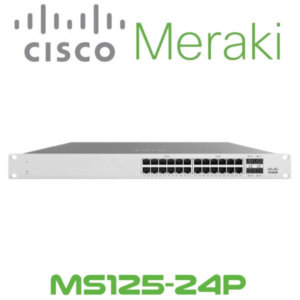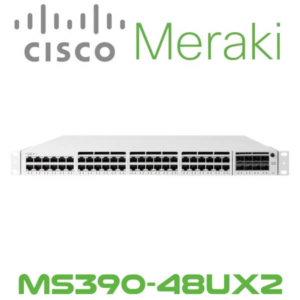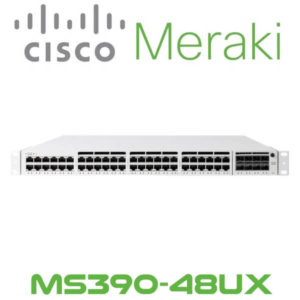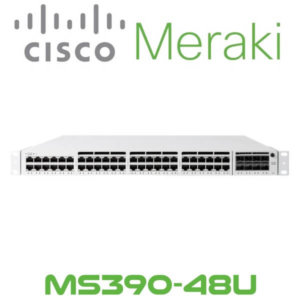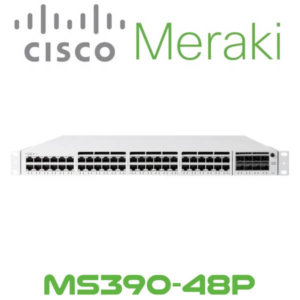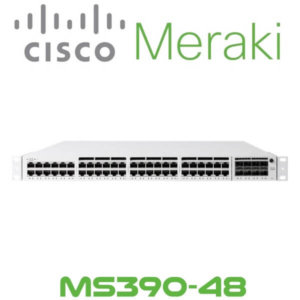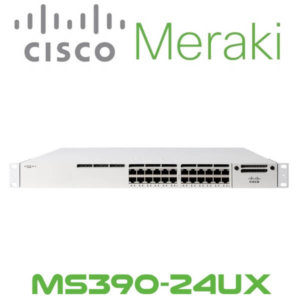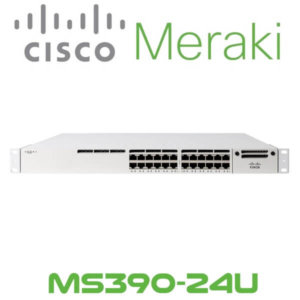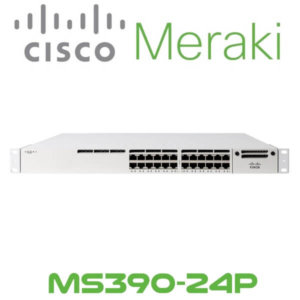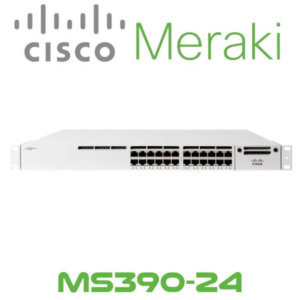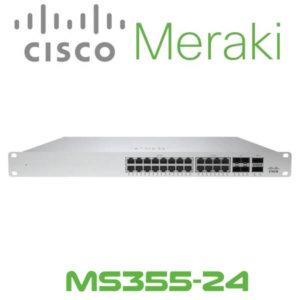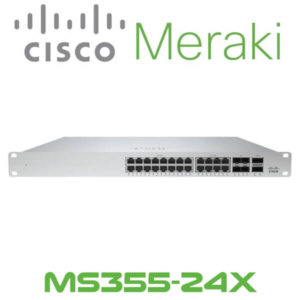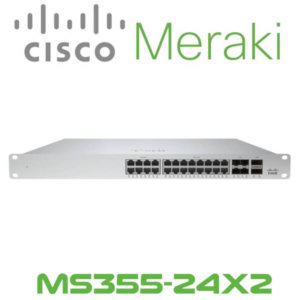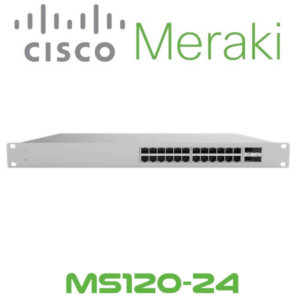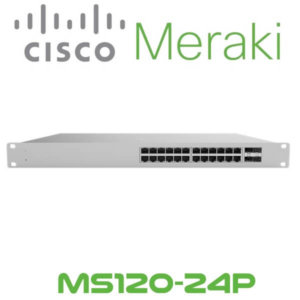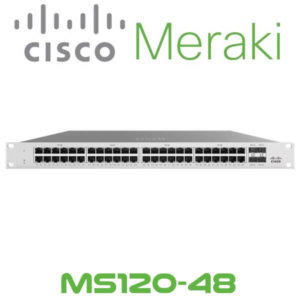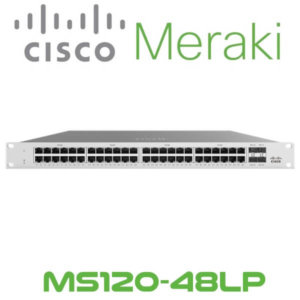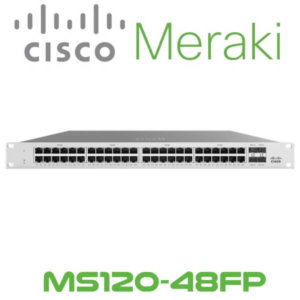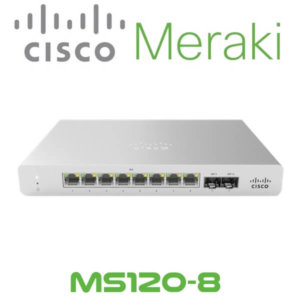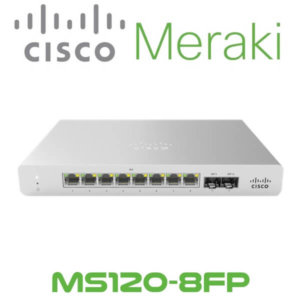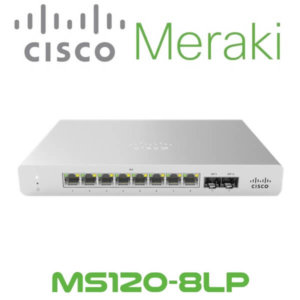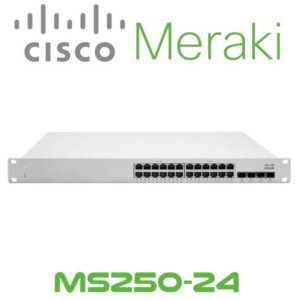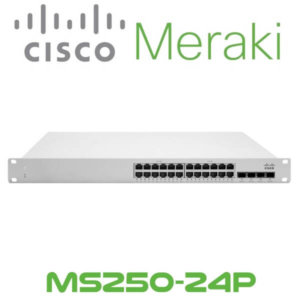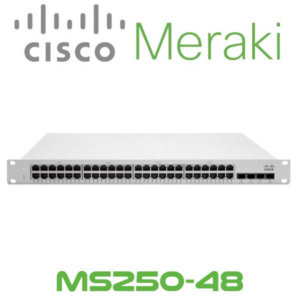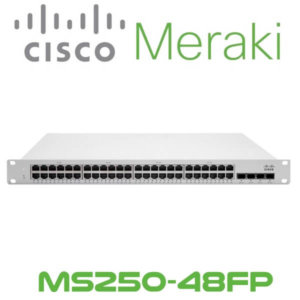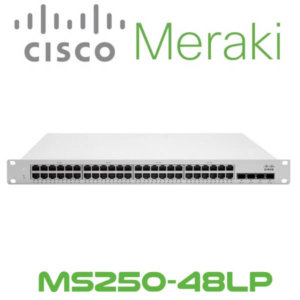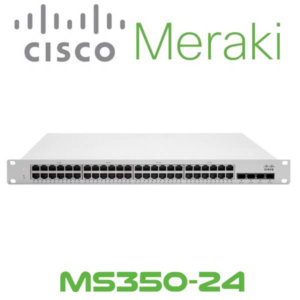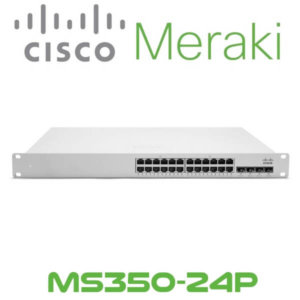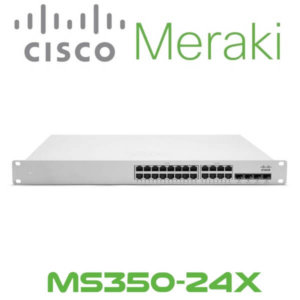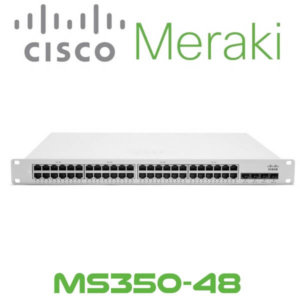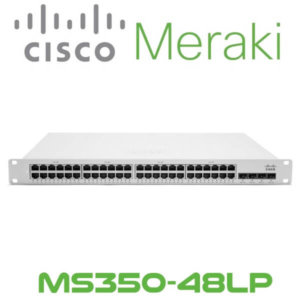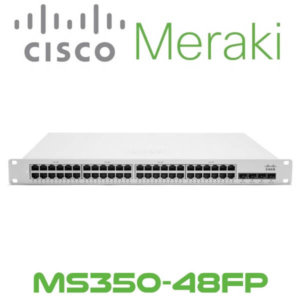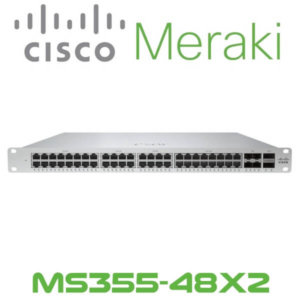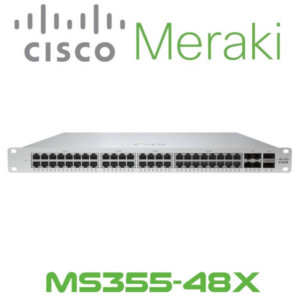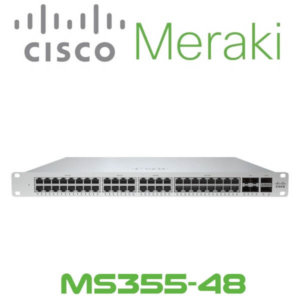Description
Meraki MS210-24P Network Switch Kenya
Meraki MS210-24P switch Kenya provides Layer 2 access switching for branch and small campus locations. The MS210-24P includes 4 x 1G SFP uplinks and physically stacks with the MS225 to gain access to its 10G uplink. This model also supports an optional, rack-mountable PSU (Cisco RPS-2300) for power redundancy requirements. Meraki switches are built from the ground up to be easy to manage without compromising any of the power and flexibility traditionally found in enterprise-class switches. The Meraki MS210-24P Kenya is managed through an elegant, intuitive cloud interface, rather than a cryptic command line. To bring up a Meraki switch, just plug it in; there’s no need for complicated configuration files or even direct physical access to the switch. Meraki’s centralized management gives administrators deep visibility into the network and how it’s used. See which switches are near capacity across hundreds of sites and also find all configuration changes made with instant search.
MS210-24P Features
- 24 x gigabit Ethernet PoE/PoE+ interfaces
- 4 x 1G SFP+ uplink interfaces
- Built-in dual stacking interfaces with up to 80G bandwidth (stacking cables sold separately)
- Non-blocking switch backplane with 128 Gbps of switching capacity
- 6 dedicated QoS queues for converged voice, video, and data applications
- 370 watt PoE budget with PoE+ support and dynamic power allocation for powering APs, phones, cameras, and other PoE enabled devices
- Low power consumption and shallow rack depth options, enabling flexible deployment in wiring closets as well as offices and classrooms
- Integrated mounting brackets for rack and desk mounting
Branch & Campus Access
- Physical stacking with support for up to 8 stack members for built-in redundancy, performance, and access to 10Gbps uplinks when stacked with an MS225 switch
- Quality-of-Service (QoS) to prioritize mission critical traffic such as voice and video
- Voice VLAN support for simplified VoIP deployments
- CDP, LLDP advertisement and snooping, with detailed neighbor discovery and visibility
- Port Mirroring support for monitoring network traffic at line rate
- IGMP Snooping to optimize network performance for multicast applications
- Link Aggregation Control Protocol (LACP) for high-capacity trunking, with Multi-chassis (MLAG) support on stacked switches
Network Security
- IEEE 802.1X, MAB, and Hybrid authentication support for wired access control with RADIUS server monitoring
- Port security and MAC whitelisting
- Change of Authorization (CoA) and RADIUS accounting support
- DHCP snooping to prevent users from adding unauthorized DHCP servers on the network
- Rapid spanning tree, BPDU guard, root guard, and other safeguards to help prevent misconfigurations and reduce convergence time
- Per port VLAN configuration
- Multiple administrative roles with sophisticated security policy management
Network Troubleshooting & Automation
- Virtual Stacking lets administrators manage up to thousands of ports in a single interface without having to physically connect stack members
- Configuration templates for rapid, zero-touch provisioning and auditing of all sites
- Network Topology for automatic and interactive network mapping
- Remote cable testing, packet capture and client discovery
- Automatic and scheduled firmware upgrades for the complete network
Converged Voice, Video and Data Environments
The Meraki MS210-24P Kenya is designed to unify data, voice, and video onto a single IP backbone. All Meraki switches support rich quality of-service (QoS) functionality for prioritizing data, voice, and video traffic. The switches support eight class-of-service (CoS) queues on every port, enabling them to maintain end-to-end traffic prioritization. PoE models provide power VoIP telephones, IP security cameras, wireless access points (APs), and other IP devices. In addition, using CDP and LLDP, PoE power is intelligently budgeted to maximize the number of PoE clients supported. For the most power-hungry applications, support for Cisco UPoE is also available. The Meraki MC products work flawlessly with Meraki switches, and create a unique and powerful experience to installing, supporting and troubleshooting VoIP technology
Application Layer Visibility
Meraki is the only switch to include integrated Layer 7 fingerprinting. Identify hundreds of applications from business apps to BitTorrent and YouTube. User fingerprinting with Google-like search allows administrators to easily identify and control individual users, PCs, iMacs, iPads, Androids, and other devices. This unprecedented visibility allows optimizing of network resources and maintaining optimal network performance.
Unified Software Architecture
Meraki switches run the same Meraki operating system used by all of Meraki’s products. The use of a common operating system allows Meraki to deliver a consistent experience across all product lines. When connected, MS210 switches automatically connect to the Meraki cloud, download configuration, and join the appropriate network. If new firmware is required, this is retrieved by the switch and updated automatically. This ensures the network is kept up-to date with bug fixes, security updates, and new features.
Simplified Management and Operations
Meraki MS210-24P Kenya is cloud-managed architecture makes it simpler than ever to quickly provision and reconfigure switch ports with security, QoS, and other parameters. The Meraki dashboard provides unified policies, event logs, and monitoring, which make it easy to manage and grow large network deployments. By providing a complete, powerful set of management functions over the web, Meraki’s cloud-based management eliminates the need for proprietary command line configuration interfaces which require expensive and time consuming certifications. Meraki MS switches can be fully deployed and provisioned in minutes, without requiring any local configuration or staging. Additional or replacement switches can be sent to remote offices and installed by non-technical staff, saving thousands of dollars in time and travel expenses.
Designed for Reliability & Environmental Efficiency
The Meraki MS210-24P Kenya is designed for reliable, long-lived operation in wiring closet environments, which may be prone to high temperatures and limited ventilation. By minimizing total component count and only using proven switching silicon, Meraki is able to deliver highly reliable products with exceptional mean time between failure (MTBF) ratings. Each Meraki switch also operates with a split-plane architecture, where silicon-based switching and data forwarding are separated from software-based control and management. By decoupling the underlying switching logic from control, each unit is able to deliver wire-speed switching even when advanced software features such as Layer 7 host and OS fingerprinting are enabled.
Distributed Branches & Remote Sites
Meraki’s cloud-based system makes it easy to manage a single switch, or thousands of distributed switches, from a single interface.
- Troubleshoot problems remotely, e.g., find which port has a bad cable attached.
- Add or replace switches without having to send a technician onsite. Switches automatically download their current configuration as soon as they are connected to the network.
- Receive email alerts or SMS messages whenever there’s a problem at a remote site.
Campus Edge
- MS switches are ideal for small and large scale campus deployments, where reliability, scalability, and manageability are top priorities.
- Virtual Stacking lets administrators manage up to thousands of ports in a single interface without having to physically connect stack members.
- Get alerts if any switch fails or goes offline, before users complain.
MS210-24P Specifications
- Interfaces
- 24 × 10/100/1000BASE-T Ethernet (RJ45) with auto-MDIX crossover
- 802.3af/802.3at Power-over-Ethernet (PoE/PoE+) on MS210-24P, available on all ports (maximum of 30W per port for PoE+)
- 4 × 1GbE SFP interfaces for uplink
- 2 × Stacking interfaces
- Auto negotiation and crossover detection
- Management
- Managed via the cloud using the Meraki dashboard
- Integrated with Meraki Wireless and complete portfolio of IT products and solutions
- No-touch remote deployment (no staging needed)
- Detailed historical per-port and per-client usage statistics
- DHCP, client, and hostname fingerprinting
- SNMP and SYSLOG support for integration with other network management solutions
- Seamless over-the-web firmware upgrades with scheduling & control
- Remote diagnostics
- Email, SMS and Mobile push notification alerts
- Cable testing and link failure detection with alerting
- Live remote packet capture
- Dynamic and interactive network discovery and topology
- Aggregated event logs with instant search
- Flexible stacking
- Physical stacking of up to 8 switches with 80 Gbps stack bandwidth on all models
- Virtual stacking supports thousands of switch ports in a single logical stack for unified management, monitoring, and configuration
- Ethernet switching capabilities
- 802.1p Quality of Service prioritization
- 802.1Q VLAN tagging with 4,095 addressable tags
- 802.1w, 802.1D Rapid Spanning Tree Protocol (RSTP, STP)
- Broadcast storm control
- 802.1ab Link Layer Discovery Protocol (LLDP) and Cisco Discovery Protocol (CDP)
- 802.3ad link aggregation with up to 8 ports per aggregate, Multichassis aggregates supported on stacked switches
- IGMP snooping for multicast filtering
- MAC forwarding entries : 16K on 24-port models, 32K on 48-port models
- Security
- Integrated two-factor authentication for Dashboard management
- Role-based access control (RBAC) with granular device and configuration control
- Corporate wide password policy enforcement
- IEEE 802.1X RADIUS, hybrid authentication and RADIUS server testing
- MAC-based RADIUS authentication (MAB)
- Port security : Sticky MAC, MAC whitelisting
- DHCP snooping, detection and blocking
- STP Enhancements : BPDU guard, Root guard
- IPv4 ACLs
- Power over Ethernet:
- 802.3af (PoE) 15.4 W per port and 802.3at (PoE+) 30 W per port
- Maximum PoE output (24P): 370 W
- PoE available on all ports simultaneously
- Performance
- Non-blocking switching fabric
- Switching capacity : 128Gbps (24-port models), 176Gbps (48-port models)
- Forwarding rate (mpps) : 41.67 (24-port models), 77.38 (48-port models)
- Jumbo Frame Support (9578 byte Ethernet frame)
- Flow control support
- Layer 3
- Static Routing (maximum of 16 static routes supported)
- DHCP Relay
- Power
- Power input : 100 – 240 VAC, 47-63 Hz
- Power consumption : 15 – 448 W
- RPS interface : Requires RPS-2300 chassis
- Mounting
- 1U Rack-mountable with included rack mount hardware
- 2-post front mounting options available
- Desktop-mountable with included feet
- Environment
- Operating temperature : 32°F to 104°F (0°C to 40°C)
- Humidity : 5 to 95% non-condensing
- MS225-24, MS225-48 feature fanless operation
- MTBF at 25°C
- MS210-24 : 590,165
- MS210-24P : 391,648
- Physical dimensions (H×W×D)
- MS210-24 : 1.72 x 19.08 x 9.84″(4.38 x 48.46 x 25cm)
- MS210-24P : 1.72 x 19.08 x 9.84″(4.38 x 48.46 x 25cm)
- Physical Weight
- MS210-24 : 6.03 lb (2.73 kg)
- MS210-24P : 8.18 lb (3.71 kg)


